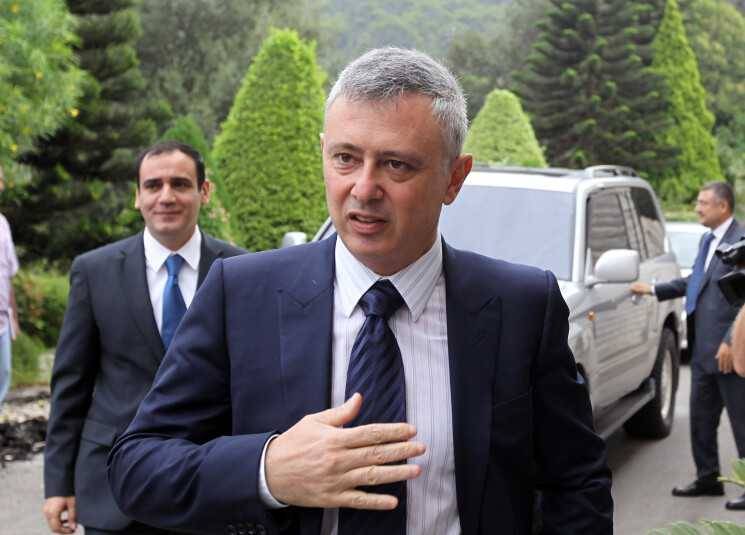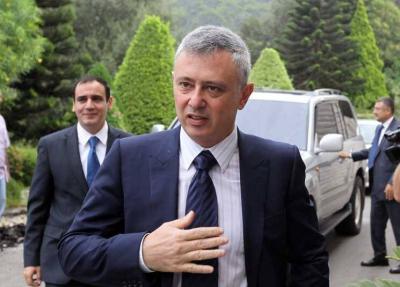With the conclusion of the parliamentary elections resulting in a lack of a clear majority, questions have arisen about how this outcome will reflect on the upcoming presidential election and its impact on the potential candidates for the presidency. In this context, some have concluded that the chances of the head of the Marada Movement, Sleiman Frenjieh, have diminished after the elections, because "Hezbollah" and its allies did not secure a majority that would allow them to have the upper hand in the presidential battle. Additionally, Frenjieh’s parliamentary bloc has shrunk compared to its previous size, which could weaken his Christian legitimacy, according to this perspective.
However, Christian circles in March 8 have a different view regarding the presidential scene, asserting that Frenjieh's chances of reaching the Baabda Palace have not weakened. They argue that the presidential election in Lebanon is complex and therefore cannot solely be reduced to the balances within Parliament, which is only one of the influencing factors. More importantly, "Hezbollah" does not want to revert to a "middle-ground president" after successfully establishing a new equation in 2016 by electing a close ally, General Michel Aoun, even though his team did not have a majority then either. Thus, giving up this "achievement" for the benefit of an unguaranteed middle figure, as past experiences with President Michel Suleiman have shown, would cause a significant imbalance and represent a loss of a strategic gain.
According to these sources, the party is likely to insist on keeping the presidency within the March 8 coalition while having a Prime Minister from a different political color. This is especially relevant since the current regional status of the party is better than during Aoun's election. These circles emphasize that the party is interested in having a president in Baabda who is a friend of the Resistance and, at the same time, accepted by the Christian environment. "This is what Frenjieh can achieve, being open to everyone, including his opponents, without abandoning his core principles."
In this context, they see that Frenjieh, despite his clear political alignment, can act as a link between the various components, "as he has shown openness to the reformist forces that emerged from the October 17 movement, indicating his awareness of the changes in the mood of a wide segment of Lebanese society." They note that most who present themselves as centrists are actually closer to March 14 but in a disguised manner.
What reinforces Frenjieh's position, according to these sources, is that the opposing team is fragmented, regardless of how much its symbols try to suggest otherwise. "The points of disagreement within it are more than the points of convergence, and it is likely that the calculations of the presidential battle will increase its fragmentation," noting that what distinguishes, for example, "the Forces" and "the Phalanges," as well as the old "Future" and the "Progressive Socialist Party," and other figures like Nehmeh Afram and Michel Moawad, surpasses what unites them.
However, the biggest challenge facing Frenjieh awaits him first within his own ranks before it exists elsewhere, as facilitating his path to the presidency requires the head of the Free Patriotic Movement, MP Gebran Bassil, to refrain from nominating himself and then to support Frenjieh's choice through his bloc's votes. Can the head of the "Movement" do so?
Christian circles in March 8 believe that Bassil might not oppose electing Frenjieh, given his implicit conviction that his path to the palace is neither clear nor safe. Additionally, it is in his long-term interest to secure the presidency within the strategic team he belongs to, "as this would keep the door of presidential ambition open for him in the future." They point out that if Bassil cannot reach the presidency, as seems to be the case so far, it would be logical for him to prefer Fryenjieh over any other candidate, especially since "Hezbollah" can act as a "guarantee" to him, specifically concerning Frenjieh's consideration of his interests during his presidential term. "However, it remains for Bassil to decide whether he will prioritize the strategic requirements of the broader line he belongs to over other matters."
The sources indicate that the relationship between Bassil and Frenjieh has been improving since the reconciliation iftar, continuing with the exchange of positive signals during and after the parliamentary elections, creating the impression that the possibility of a mutual understanding between them regarding the presidential file is not impossible. If such an understanding were to materialize, the sources confirm that "Hezbollah," the Free Patriotic Movement, and their allies could secure a solid base of about 60 MPs to support Frenjieh's nomination, which would then be relied upon to attract the remaining number required to ensure his victory in the second round of the presidential election.
Regarding the parliamentary size of the Marada Movement and its effect on the legitimacy of his candidacy, the sources point out that having one more MP or one less is not a decisive criterion in presidential qualifications. "It is noteworthy that Frenjieh's priority during the last elections was not to win a bloc but rather to establish a coalition of coherent allies, which is what is currently being worked on, aiming to create a bloc of at least five MPs."
Beyond the internal details, the sources confirm that Frenjieh is the most suitable to navigate potential regional settlements in the upcoming phase, especially since his relationships are good with the countries concerned with Lebanese affairs, both east and west.




